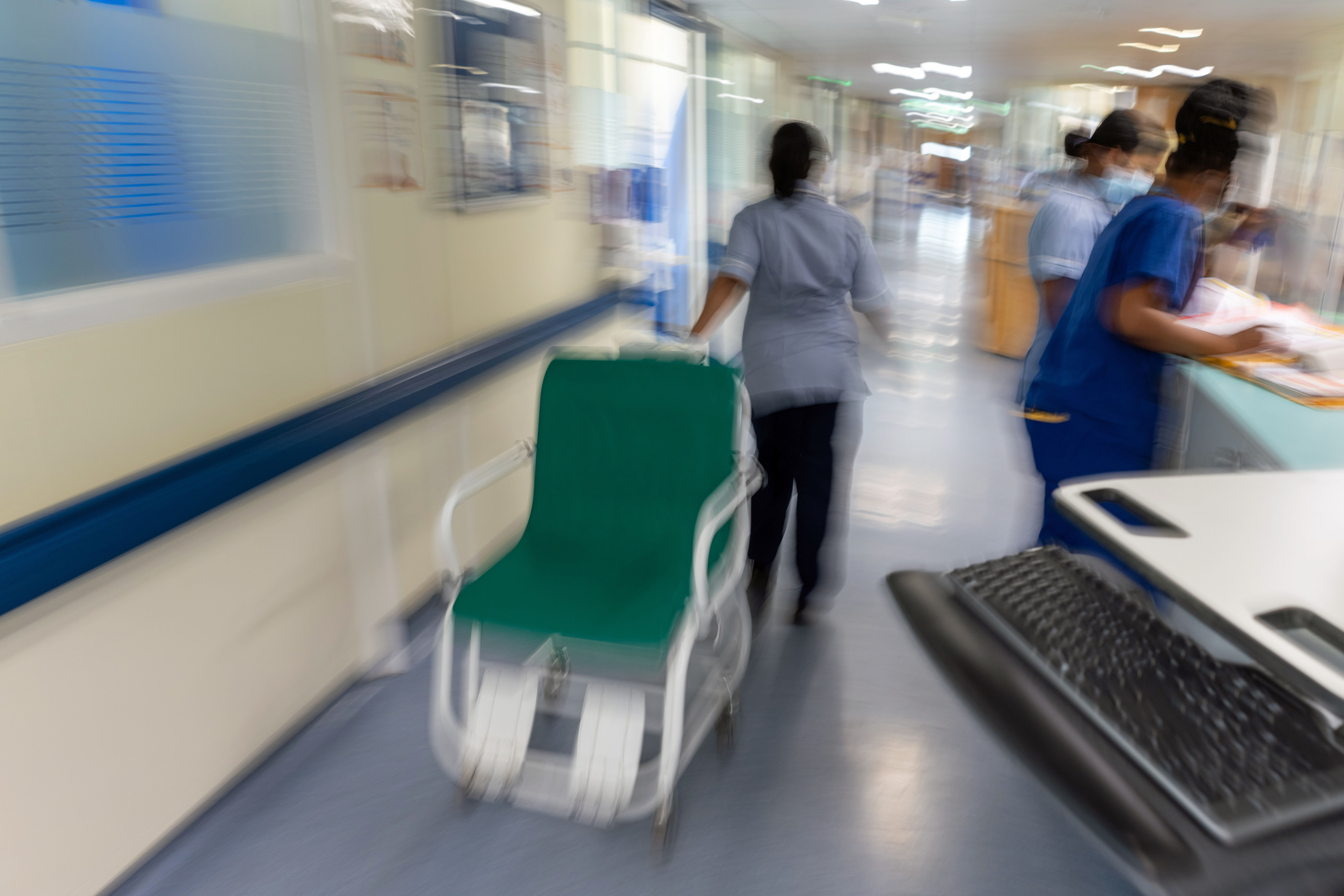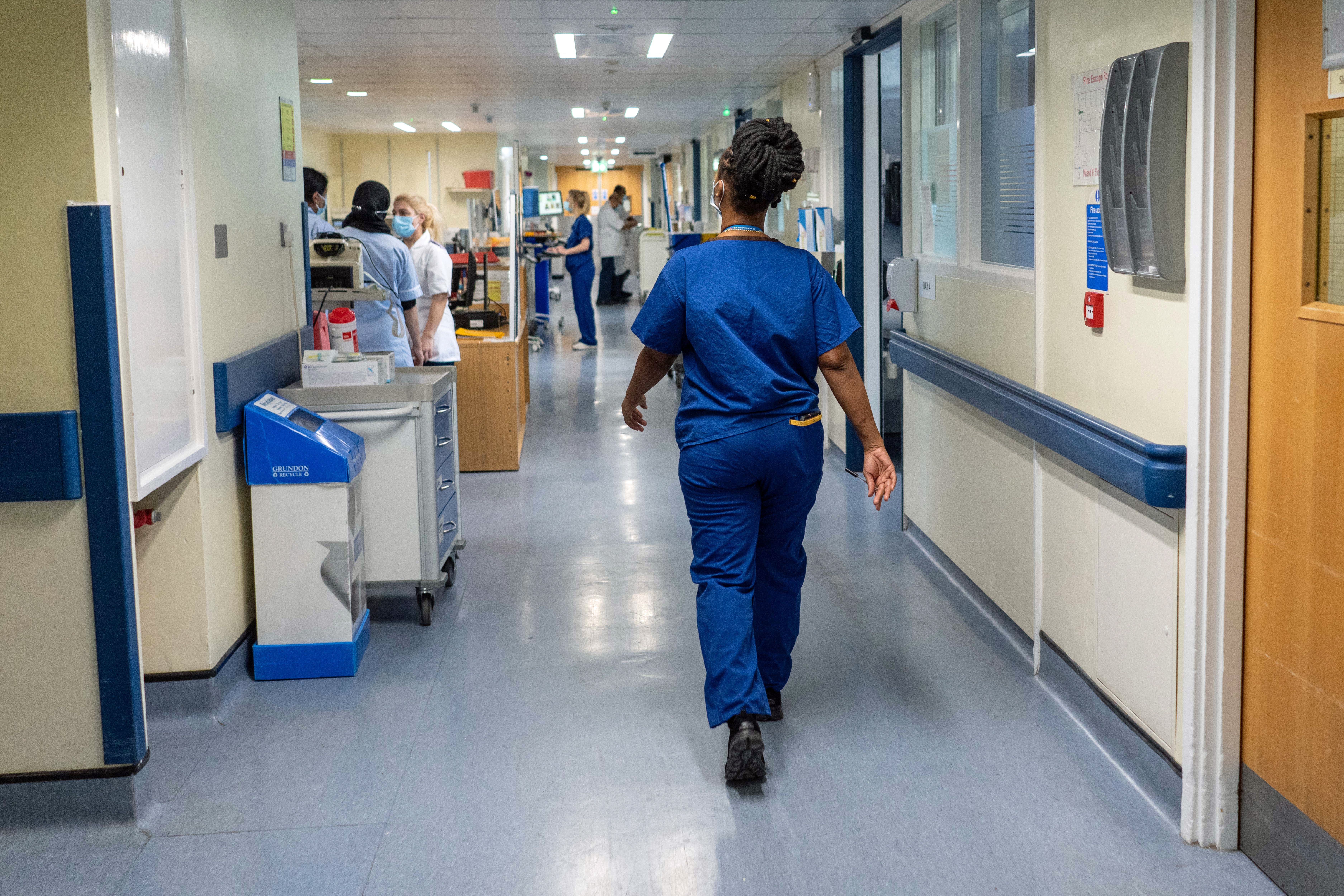Highly contagious winter vomiting bug cases surge as flu hospitalisations rise
NHS staff struggle to discharge patients as flu hospitalisations hit highest level this winter, while norovirus infections are up 40 per cent on same period last year
Your support helps us to tell the story
From reproductive rights to climate change to Big Tech, The Independent is on the ground when the story is developing. Whether it's investigating the financials of Elon Musk's pro-Trump PAC or producing our latest documentary, 'The A Word', which shines a light on the American women fighting for reproductive rights, we know how important it is to parse out the facts from the messaging.
At such a critical moment in US history, we need reporters on the ground. Your donation allows us to keep sending journalists to speak to both sides of the story.
The Independent is trusted by Americans across the entire political spectrum. And unlike many other quality news outlets, we choose not to lock Americans out of our reporting and analysis with paywalls. We believe quality journalism should be available to everyone, paid for by those who can afford it.
Your support makes all the difference.Cases of a highly contagious winter vomiting bug continue to rise and the number of flu patients in hospitals hit its highest level this winter as NHS staff face a growing struggle to clear beds.
Norovirus cases in the first two weeks of January were 40 per cent higher than average for this time of winter, with reports of the illness highest in adults aged 65 and over.
Meanwhile, an average of 1,500 people were in hospital each day last week with flu, including 65 in critical care beds, according to NHS England.
The total is up 12 per cent from 1,400 in the week to 14 January and is just above the previous peak of 1,550 a fortnight earlier.
Norovirus is a stomach bug that causes vomiting and diarrhoea and usually passes in two days, although some people can end up needing hospital treatment.
Cases of the virus, which can sweep through care homes, hospital wards and nurseries, have been rising since last year and are above pre-pandemic levels. Health experts said the rise in cases could be linked in part to the recent cold weather.
Data published by the UK Health Security Agency on Thursday showed that there were 487 cases of norovirus in the first two weeks of January – compared to an average of 349 over the same period in the past five years.

The number of people in hospital with norovirus-like symptoms is down slightly but remains higher than the same period last year. There was an average of438 adult hospital beds filled with patients, down from 452 in 2020.
Several hospitals have had to either close wards or restrict visiting hours due to outbreaks of the virus, cases of which have also been rising across the US, where 109,000 people are hospitalised with the illness every year.
Earlier this week visits to the Hereford County Hospital were restricted to compassionate grounds only. On Thursday, East Surrey Hospital closed three wards and limited its A&E to one visitor per patient after an outbreak of the bug.

Professor Sir Stephen Powis, NHS national medical director, said: “These figures show this continues to be a challenging winter, with our staff facing a combination of considerable pressures including winter viruses, high bed occupancy and the knock-on effects from strikes.
“Staff must also contend with continued issues discharging patients who are medically fit due to a lack of social care capacity and a year-on-year increase in ambulances arriving at hospitals.”
Amy Douglas, norovirus epidemiologist at UKHSA, said: “If you have got diarrhoea and vomiting, you can take steps to avoid passing the infection on.
“Do not return to work, school or nursery until 48 hours after your symptoms have stopped and don’t prepare food for others in that time either.”
She added: “If you are unwell, avoid visiting people in hospitals and care homes to prevent passing on the infection in these vulnerable settings.
“Washing your hands with soap and warm water and using bleach-based products to clean surfaces will also help stop infections from spreading. Alcohol gels do not kill norovirus so don’t rely on these alone.”
The rise in flu infections, meanwhile, comes as NHS staff are facing a growing struggle to clear beds of patients who are medically fit to leave, with health chiefs warning wards are “almost full to the brim”.
Delays in discharging patients, for reasons including a shortage of space in care homes, have jumped sharply since the start of January, piling further pressure on hospitals already dealing with the impact of winter viruses.
The average of 1,500 people in hospital each day last week with flu remains below the level those reached last year, which saw more than 5,000 people in hospital with the virus as the UK suffered its worst flu outbreak for a decade.
The number of patients testing positive for Covid-19 has dropped slightly, with an average of 3,900 each day in the week to 21 January, down from the previous week’s total of 3,900 and the second weekly fall in a row.
Overall, an average of 14,400 hospital beds per day last week were occupied by people ready to be discharged, up from 13,600 in the previous week and 12,500 a fortnight earlier.
The figure is the highest weekly average so far this winter and also the highest since comparable records began in April 2021.

Saffron Cordery, deputy chief executive for NHS Providers, which represents NHS trusts in England, said the latest figures showed health services are being “stretched to the limit week after week with no let-up”.
She added: “Demand for care keeps growing, especially as very cold weather and winter bugs and illnesses such as flu have affected lots of people – including NHS staff.
“NHS trusts are working flat out with wards almost full to the brim.
“Thanks to trusts’ hard work there are now 5,000 more core beds, but the high level of occupancy shows we need even more investment – not just in hospitals but in mental health, community and ambulance services too, to have enough people and resources to give patients first-class care.”
“The impact of nine days of strikes by junior doctors before Christmas and in early January is still being felt. Seventy days of industrial action across the NHS since December 2022 have added to the strain on the whole system and patients having to wait even longer for the care they need is a huge concern.”

Join our commenting forum
Join thought-provoking conversations, follow other Independent readers and see their replies
Comments